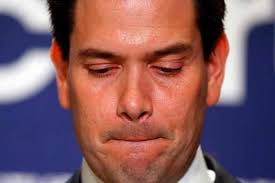
Marco Rubio dove into his new role as White House National Security Advisor during his first week, juggling calls between nuclear-armed India and Pakistan while attempting to revive stalled peace talks between Ukraine and Russia and preparing for the president’s first trip to the Middle East.
Just a few months ago, Washington Republicans grimly speculated about how long Rubio would last in the turbulent environment of President Donald Trump’s inner circle.
Now, the former Florida senator has become the most powerful member of the U.S. cabinet by title since Henry Kissinger, holding multiple positions, including Secretary of State, Acting Administrator of the U.S. Agency for International Development (USAID), and Acting Archivist of the National Archives and Records Administration.
“Do you know what would be nice? The Library of Congress. That would be a great job,” Rubio joked in front of an audience last week regarding his increasing list of responsibilities. “And the Director of Public Health! Just kidding.”
Rubio’s rapid ascent in Trump’s orbit has coincided with his support for policies that his Democratic colleagues and some Republicans argue are unrecognizable from those he championed as a senator and presidential candidate.
Once a passionate advocate for foreign aid, Rubio oversaw the dismantling of USAID, leading to the closure of health clinics across Africa and the Middle East, the layoff of nearly all USAID staff, and new forecasts of rising infectious and communicable diseases in the developing world.
A long-time hawk in foreign policy who has harshly criticized previous presidents for engaging in dialogue with U.S. adversaries, Rubio finds himself defending Trump’s diplomatic outreach to Russia, Iran, Hamas, and Venezuela.
For Rubio’s senior advisors, any suggestion that he would adopt an alternative foreign policy or act as a brake on the president’s instincts—unlike many officials did during Trump’s first term—is absurd.
“Some of his former colleagues expected him to be the ‘adult in the room.’ That’s a very distorted view of our constitutional system,” said a senior Rubio advisor, who, like others, spoke on condition of anonymity to discuss the rise of the high-ranking diplomat candidly. “The President of the United States is the elected leader. He defines our foreign policy, and it is the responsibility of the Secretary of State and others to implement that vision.”
The dangers of this balancing act are clear: Trump has ousted four of the five national security advisors who have served under him since 2016.
Some suffered a harsh exit, like John Bolton, who saw his Secret Service detail dismissed despite ongoing concerns for his safety. Others simply endured damage to their reputations, like H.R. McMaster, whom Trump labeled a “weak loser and totally ineffective.”
Rubio is proceeding cautiously, remaining silent on how he will manage the National Security Council (NSC), the White House entity that presents the president with policy options during emerging crises by synthesizing input from the country’s top intelligence, military, cyber, and diplomatic officials.
The NSC has several vacancies after Trump dismissed several Republican officials accused of disloyalty by influential right-wing figure Laura Loomer. But don’t expect Rubio to increase NSC staffing anytime soon, said a senior Rubio advisor. “On the contrary… reducing staff is the right strategy,” declared Mauricio Claver-Carone, Rubio’s Special Envoy for Latin America, to The Washington Post.
A greater role is expected for the State Department in policymaking, along with a reduction of the NSC, which had become bloated and overstaffed under successive administrations, he noted.
“The president sets the agenda and objectives; then the State Department develops policy, and a streamlined NSC implements it across the interagency,” said Claver-Carone. “The State Department needs to learn how to formulate policy again, something it has failed to do for decades under previous administrations.”
A senior U.S. official stated that no final decision had been made regarding the size of the NSC.
In the center of Rubio’s rise lies a paradox: he is powerful due to his reluctance to wield that power, acutely aware of the graveyard of Trump officials who preceded him.
He has not filled the State Department with neoconservative ideologues resistant to Trump’s approaches toward Iran or Russia. Instead, he has empowered Michael Anton, a MAGA supporter and author of the pivotal essay “The Flight 93 Election,” as his Director of Policy Planning and leader of technical discussions between the U.S. and Iran.
Rubio’s top official for public diplomacy, Darren Beattie, is a Trump favorite who has denied the genocide of Uighurs in China, recognized by the U.S., and has made other comments that are out of step with Rubio’s long-held beliefs.
Associates from Elon Musk’s Government Efficiency Department still work in the State Department, including Jeremy Lewin, a 28-year-old who now serves as Acting Director of the Office of Foreign Assistance and oversees billions of dollars in foreign aid.
When Trump gave his close friend Steve Witkoff a broad mandate on the war in Ukraine, the conflict in Gaza, and a potential nuclear deal with Iran, Rubio accepted the decision even at the expense of his own standing as the country’s chief diplomat. (Text and Photo: Cubadebate)